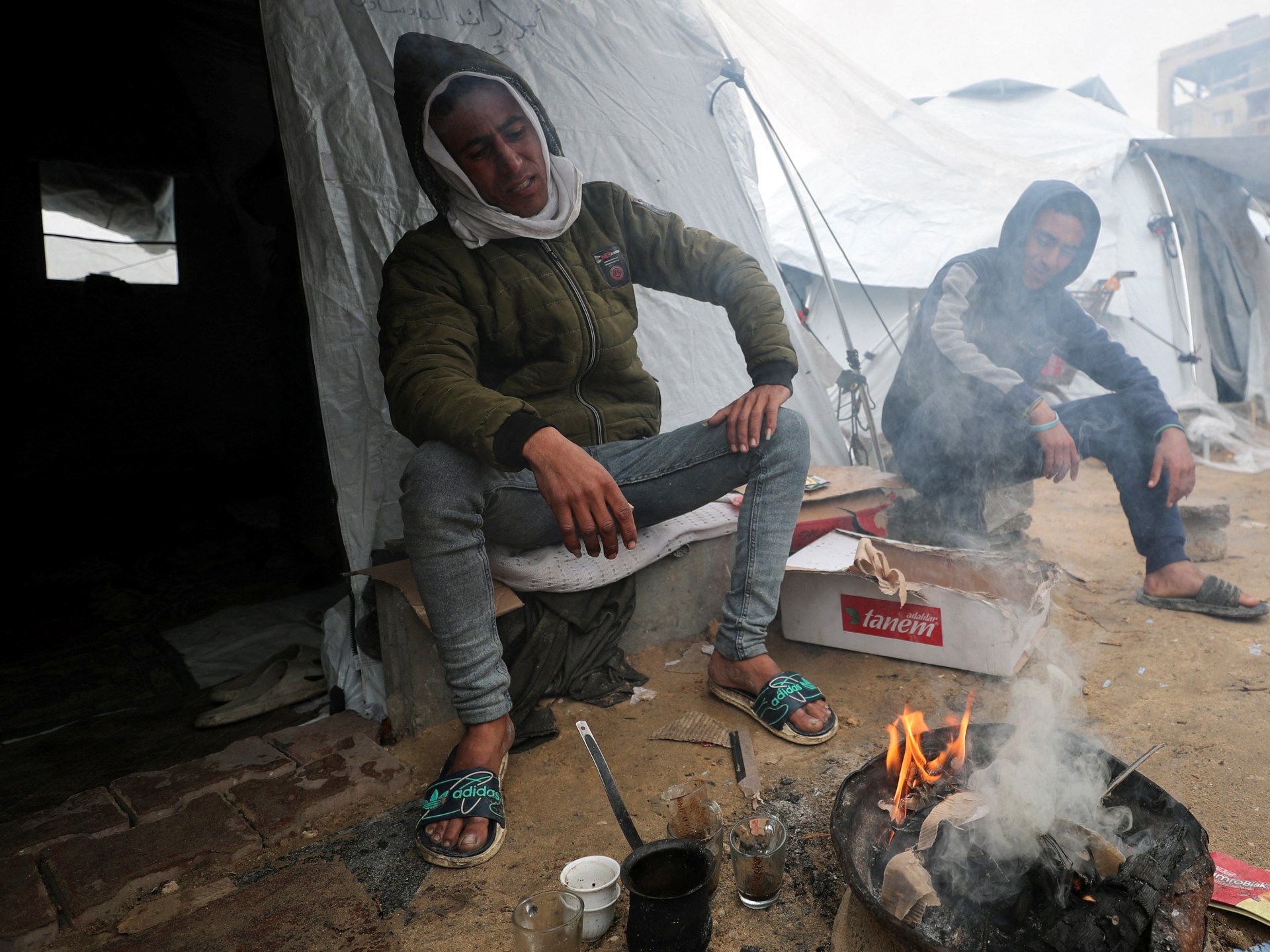Palestinians in Gaza are suffering even more as a result of heavy rain, wind, and winter, with thousands of people living in worn-out tents after Israel’s bombardment of the coastal enclave.
Since a ceasefire was declared last month, allowing Israel to stop its 15-month offensive against northern Gaza, hundreds of thousands of Palestinians have since resurrected the area.  , But most people found their homes destroyed or heavily damaged.
Families have since found it difficult to find shelter amid the besieged enclave’s mounds of destruction.
In addition, hundreds of tents and shelters were flooded by sewage and rainwater, according to a spokesperson for the Gaza City municipality, telling Al Jazeera that the city did not have enough resources to assist the displaced people in the wake of the storm.
Mahmoud Riyad Khalil al-Fayoumi claimed to have been living in a tent with three other families while speaking to Al Jazeera from a makeshift camp in the courtyard of a school in Gaza City.
“The blankets are very wet”, said al-Fayoumi, explaining that he sent his two-month-old baby and his brother, who has a spinal cord injury, to stay with other people due to the harsh weather conditions.
“We don’t know what to do. We don’t know where to go. This is our situation here”.
According to Hani Mahmoud, a journalist from Gaza City, many Palestinians were forced to leave a camp in the city’s western area due to heavy rain and wind.
Basic supplies such as warm clothing also are not widely available, worsening the situation.
According to Mahmoud, “People are currently without shelter, as well as the very essential supplies that provide them with some warmth and protection from these terrible weather conditions.”
In its latest update on Wednesday, the United Nations humanitarian affairs office (OCHA) said with more than 500, 000 people returning to the Gaza and North Gaza governorates, “the need for food, water, tents and shelter materials in that area remains critical”.
Since the ceasefire ended on January 19, only limited humanitarian aid has been delivered.
The Gaza Government Media Office claimed earlier this week that Israel had slowed down the entry of aid and shelters into the area.
“Securing shelters has become a pressing humanitarian need that cannot be ignored. It stated in a statement earlier this week that it is the most urgent need at this time.
Palestinians in Gaza are ill-equipped to withstand the cold because they have lost so much during the war, according to Tess Ingram, a communications manager at UNICEF.
Ingram, a resident of Gaza City, told Al Jazeera that the situation is particularly dangerous for children.
“For kids in these conditions, it’s not only frightening to be outside, exposed and in the cold, but it’s also very dangerous for their wellbeing”, she said. It’s obvious when you meet with families that they don’t have what they need to keep them from the cold, according to , “We’ve had a number of children in Gaza die of hypothermia.” Children don’t have warm clothing in families. There’s many children without shoes”.
Other parts of Gaza are still in harsh conditions for Palestinian refugees.
Saqer Abdelal, who lives in Deir el-Balah in the center of the enclave, told Al Jazeera that “the tent flew away and the people were disorganized.” We’re now bringing our belongings to a man who has agreed to host us until the winter is over.
“This is more difficult to us than displacement”, said Anwar Hellis, another Palestinian in Deir el-Balah. “We found our tents destroyed by the wind when we woke up at night.” Our food and clothing were sand-filled.
In southern Gaza, the Rafah municipality has called for 40, 000 additional tents and emergency shelter units for residents. Despite having destroyed homes elsewhere, the city is still home to thousands of internally displaced people.
Source: Aljazeera

Leave a Reply